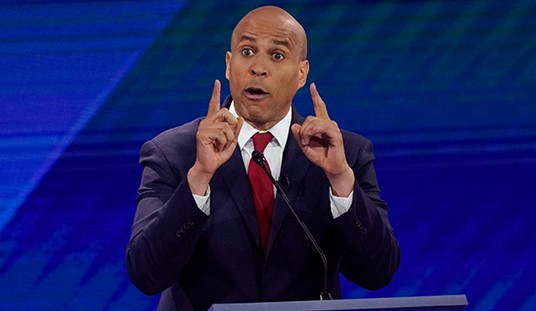It was reported yesterday that Vice President Joe Biden “guaranteed” to ailing Boston Mayor Tom Menino that sweeping gun control legislation would be passed by the end of January.
How sweeping?
A quick look at Feinstein’s semi-auto ban legislation suggests that up to 75% of all handguns currently in circulation would be banned, along with 50% of all long guns.
Depending on its configuration, the AR-15 you already have would probably be treated like a machine gun. You would have to be fingerprinted, background checked by the FBI, and undergo a six-month license application process to keep it. And when you die, the government will seize it.
If you don’t get an NFA license, you can expect the SWAT teams to descend on your house.
But, you ask, how could such rabidly anti-gun legislation ever get past Congress?
For an answer, look at what happened on the fiscal cliff.
The Senate would change its rules so that it could pass a gun ban with only 50 votes (plus the vote of Vice President Joe Biden) -– or so that you could write the gun ban in a House-Senate conference committee on a must-pass bill. Democrats like West Virginia’s Joe Manchin, Nevada’s Harry Reid, and Pennsylvania’s Bob Casey — who will not have to run for reelection for awhile –- will cast “courageous” votes for this gun ban.
And it will hit the House with enormous momentum –- momentum which House Speaker John Boehner (who has already called for a dialogue on gun control) may not have the courage to resist.
But the first step will be to demolish the Senate rules so that gun control only requires 50 votes -– or so that gun control can be inserted in the conference report on a must-pass bill. And this is where John McCain comes in.
McCain is angry that Kentucky Senator Rand Paul worked with Gun Owners of America on a variety of pro-gun issues that slowed down his defense funding bill. And it is no secret why McCain loves House-Senate conferences: Just last month, he and Armed Services Chairman Carl Levin used the DoD conference to demolish position adopted by Senate supermajorities, including the prohibition on indefinitely detaining American citizens without trial. Therefore, McCain and Levin are out to punish Paul and GOA for opposing his legislation to indefinitely detain American citizens.
So they are working together on a series of rules changes to, inter alia, make gun control a lot easier to pass.
The first McCain-Levin rules change would make it impossible to fight a motion to proceed to gun control legislation. Remember ObamaCare? Our last real shot to kill ObamaCare was by filibustering the motion to proceed to it. Once the motion to proceed was adopted, the bill became amendable and Harry Reid could play “let’s-make-a-deal.”
The second McCain-Levin rules change would make it easier to add gun control to a bill in conference. Currently, senators can block a conference. If the McCain proposals are adopted, a must-pass bill could be sent to conference, amended in conference with a draconian gun ban, and then sent back to the House and the Senate on a take-it-or-leave-it basis.
McCain will try to tell you that that would be outside the “scope of conference.” But “scope of conference” rules are never followed. Gramm-Rudman was written in conference from the ground up.
The third McCain-Levin rules change would block any amendments except for those Leader McConnell and Manager McCain proposed. All other senators would be out in the cold.
This McCain-Levin package must be stopped.
Senator Rand Paul is currently planning to offer an amendment requiring a two-thirds vote in the Senate before any anti-gun measure can be passed.
I know. I know. If it were up to me, gun control would not be able to be passed with 100 votes. But we need to propose something which will pass the Senate.
So this is the “day of march.” We saw, with the resolution of the fiscal cliff debate, how the diminution of the Senate rules (and Republican courage) can lead to historically bad results.
But if conservatives allow these rules changes to be implemented, they have no reason to complain when the rules allow them to be defeated in battles over the debt limit, the continuing resolution, and sequestration.
In those battles, the rules -– which are now up for debate -– will determine whether we win or lose.














Join the conversation as a VIP Member